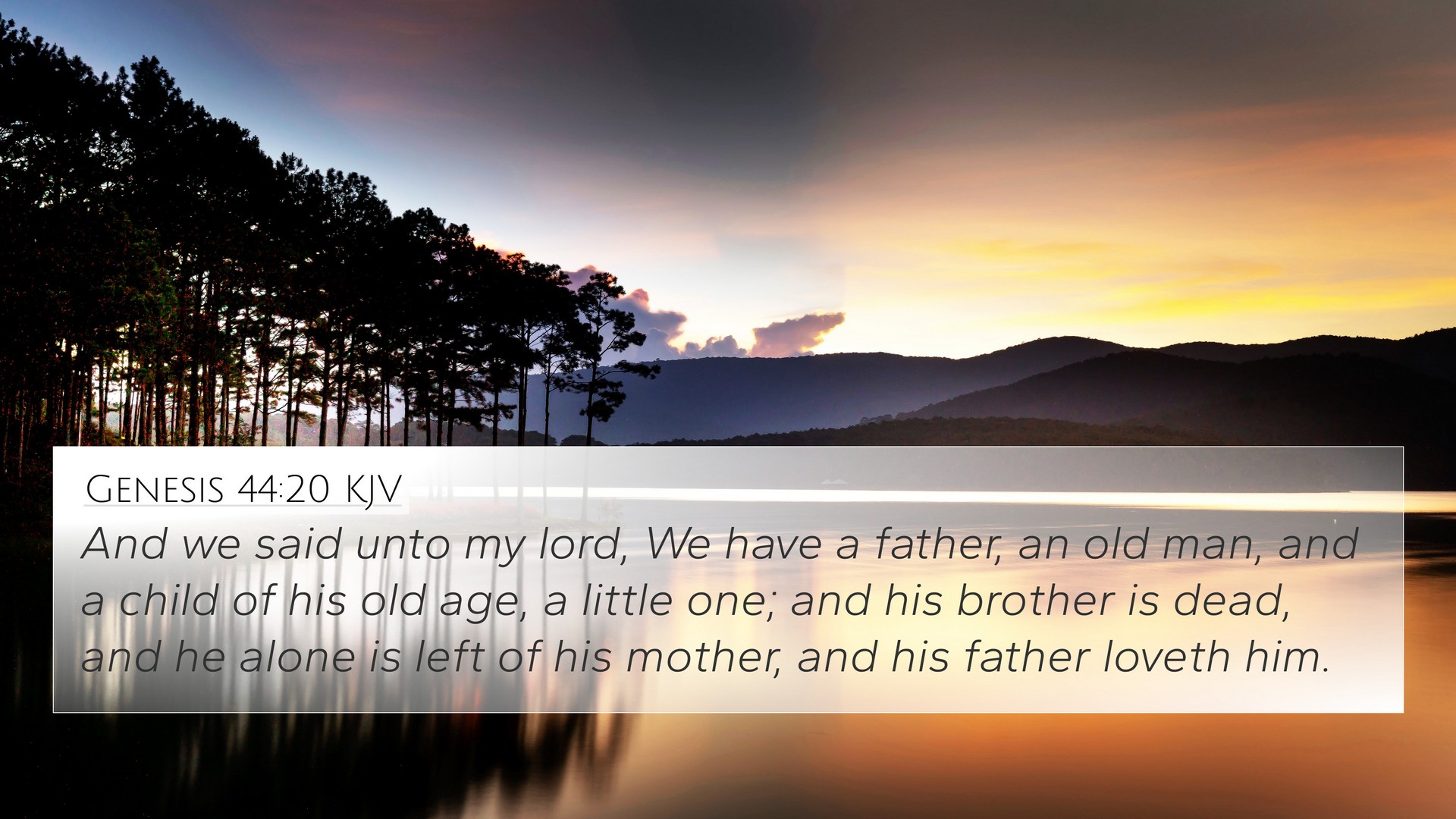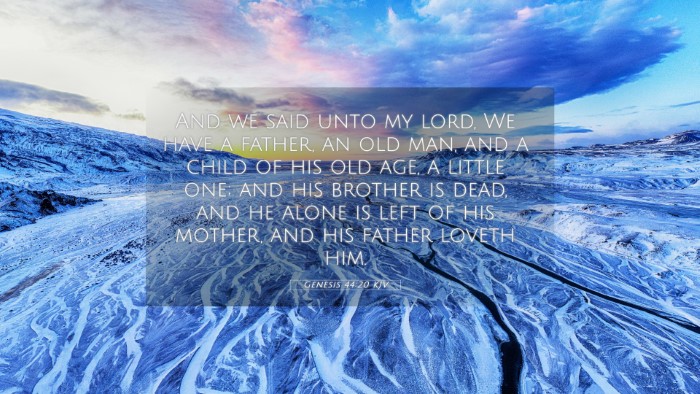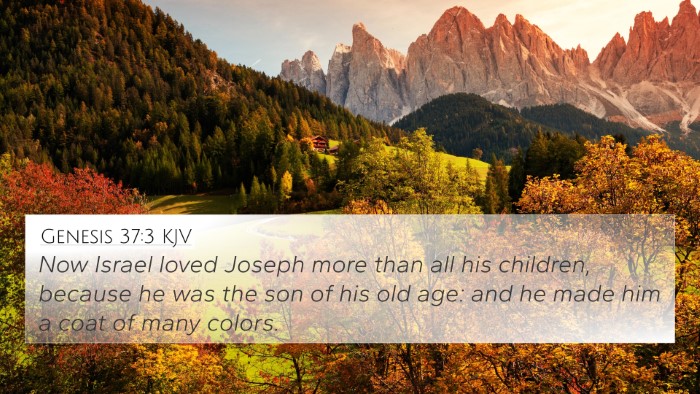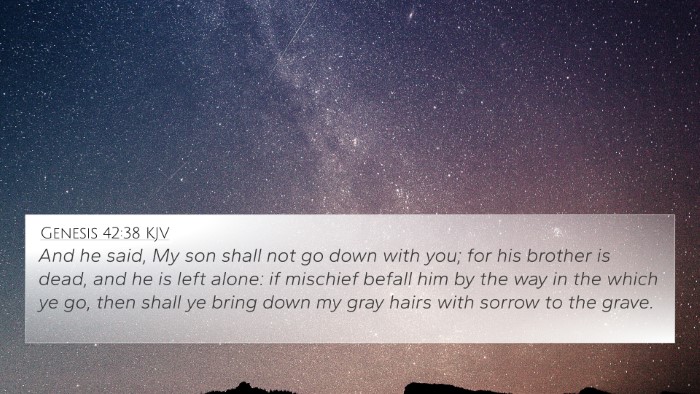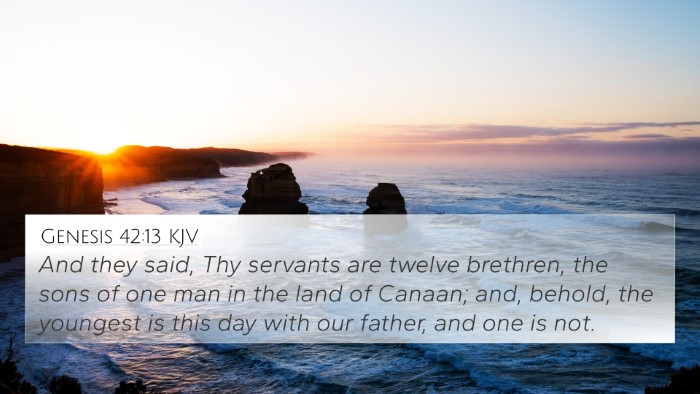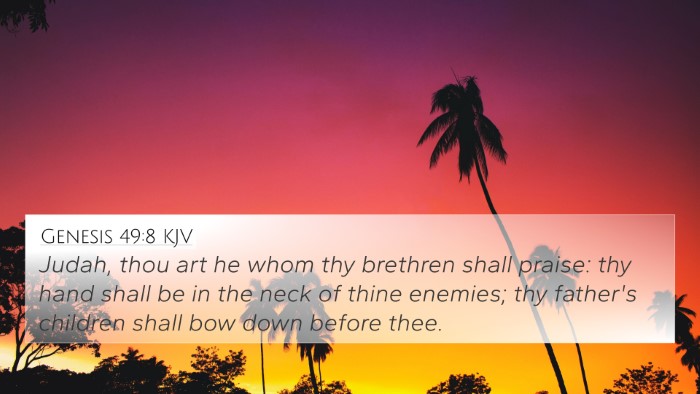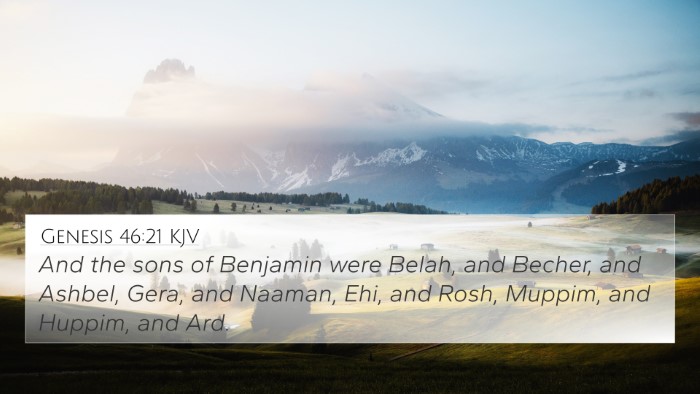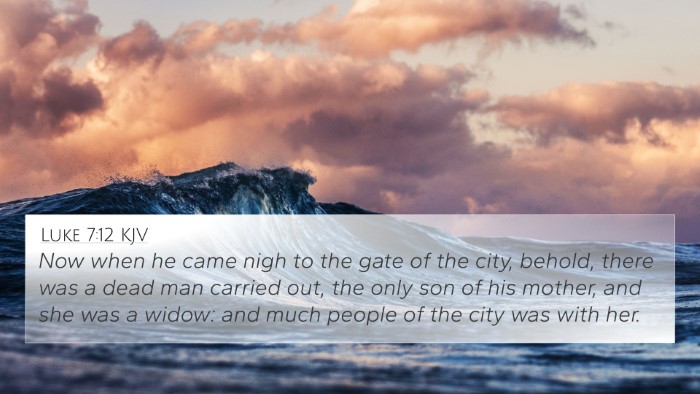Meaning and Interpretation of Genesis 44:20
Genesis 44:20 captures a critical moment in the narrative of Joseph and his brothers. The verse recounts a pivotal conversation that unveils the tension surrounding Joseph's plan to test his brothers after years of separation and their previous betrayal. In understanding this verse, we can draw upon the insights of notable public domain commentaries such as those by Matthew Henry, Albert Barnes, and Adam Clarke. These commentaries offer a wealth of interpretation, providing a deeper grasp of the biblical text.
Scriptural Context
To comprehend the meaning of Genesis 44:20, it is essential to consider its place within the larger narrative of Genesis. This chapter describes Joseph’s clever test of his brothers who had previously sold him into slavery. They are unaware of his true identity as he now holds power in Egypt.
Verse Analysis
In Genesis 44:20, the brothers respond to the steward of Joseph's house about their father's grief regarding Benjamin. This moment reveals their deep-seated guilt over their past actions and their expressions of loyalty to their father.
Insights from Commentaries
Matthew Henry: Henry emphasizes the significance of familial bonds and the moral struggles that arise from past sins. He points out that the brothers' distress over their father’s sorrow illustrates their transformation from the jealousy that once led them to betray Joseph.
Albert Barnes: Barnes highlights the psychology of the brothers, noting their fear and responsibility towards their father. Their emotional ties are tested as they are faced with the responsibility of losing another son, which echoes their past when they deceived their father concerning Joseph's fate.
Adam Clarke: Clarke elaborates on the emotional weight of the statement made by the brothers. He underlines the themes of redemption and repentance as the brothers display a change of heart, indicating their growth and recognition of their wrongful actions.
Thematic Connections and Cross-References
Genesis 44:20 can be connected thematically to various other passages in Scripture that explore the ideas of guilt, family loyalty, and redemption. Below are significant cross-references:
- Genesis 37:31-33: The initial deceit and fatherly grief over Joseph's 'death'.
- Genesis 42:21: The brothers acknowledge their guilt regarding Joseph.
- Genesis 43:30: Joseph’s compassion shown to Benjamin, revealing a deeper familial bond.
- Exodus 20:12: The command to honor one's father and mother, reflecting the brothers' struggle with their familial duties.
- Matthew 5:23-24: The importance of reconciliation, underscoring the need to address guilt within relationships.
- Luke 15:20-24: The story of the Prodigal Son, reinforcing themes of forgiveness and familial restoration.
- Hebrews 12:15: The warning against the root of bitterness, which resonates with the brothers' prior actions against Joseph.
Practical Applications
Understanding Genesis 44:20 through the lenses of these commentaries encourages reflection on our own familial relationships and past grievances. It emphasizes the importance of repentance, forgiveness, and healing within family dynamics.
When studying the Bible, utilizing tools like a Bible concordance or a Bible cross-reference guide can enhance the understanding of these connections. Cross-referencing can serve as a method to draw parallels between different scriptures, enriching one's study and application of Biblical principles.
Conclusion
Genesis 44:20 serves as a deeply significant verse that opens discussions on complex themes of guilt, redemption, and familial loyalty. By integrating insights from prominent commentaries and exploring related scriptures, readers can gain a comprehensive view of how this verse interacts with broader Biblical narratives.
This detailed examination not only aids in personal understanding but also equips individuals engaged in Bible cross-reference studies with tools to delve deeper into the text, encouraging a holistic view of the interconnections within the Scriptures.
